Motorcyclists, popularly known as okada riders, have been an integral and inevitable part of burgeoning cities across Nigeria. As our population grew, so did basic needs. And transportation wasn’t left out. With towns expanding into cities and cities into megacities, the need for quick transportation arose and this ushered in the era of motorcycles.
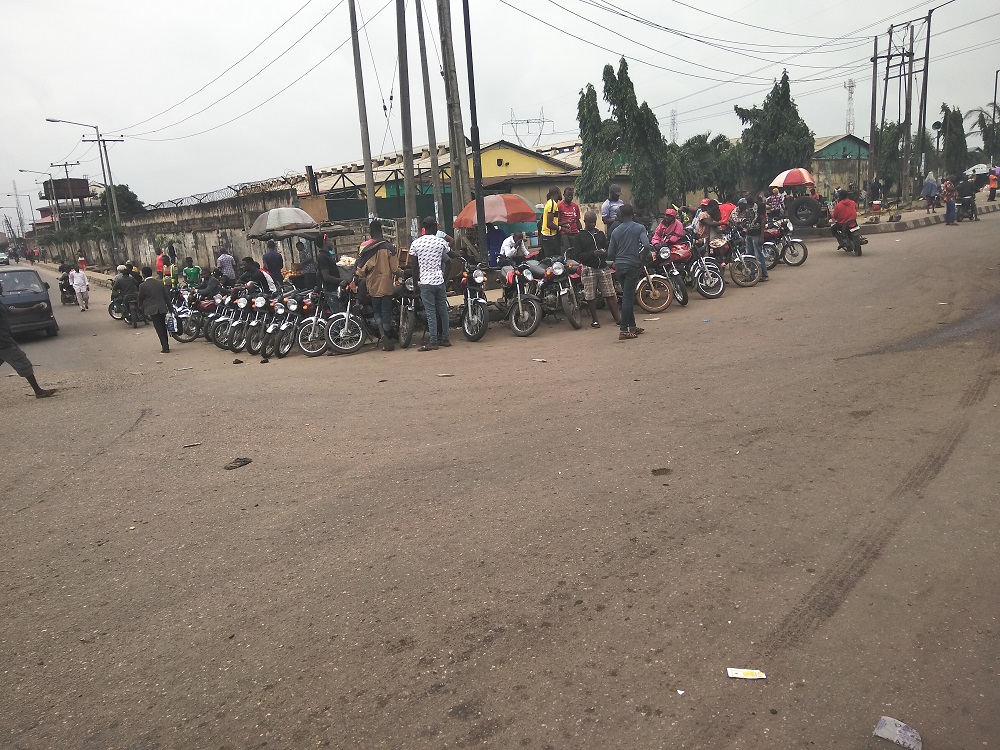

In Lagos alone, there are probably as many okadas as there are humans willing to ride on them. And just when one thought the competition was stiff enough as it were, bike hailing companies are breaking into the already saturated field, first with Gokada, MaxNG and now with Opera’s ORide which, thanks to its huge money backing, blew the industry wide open with their incredibly numerous and conspicuously obvious motorcycles.
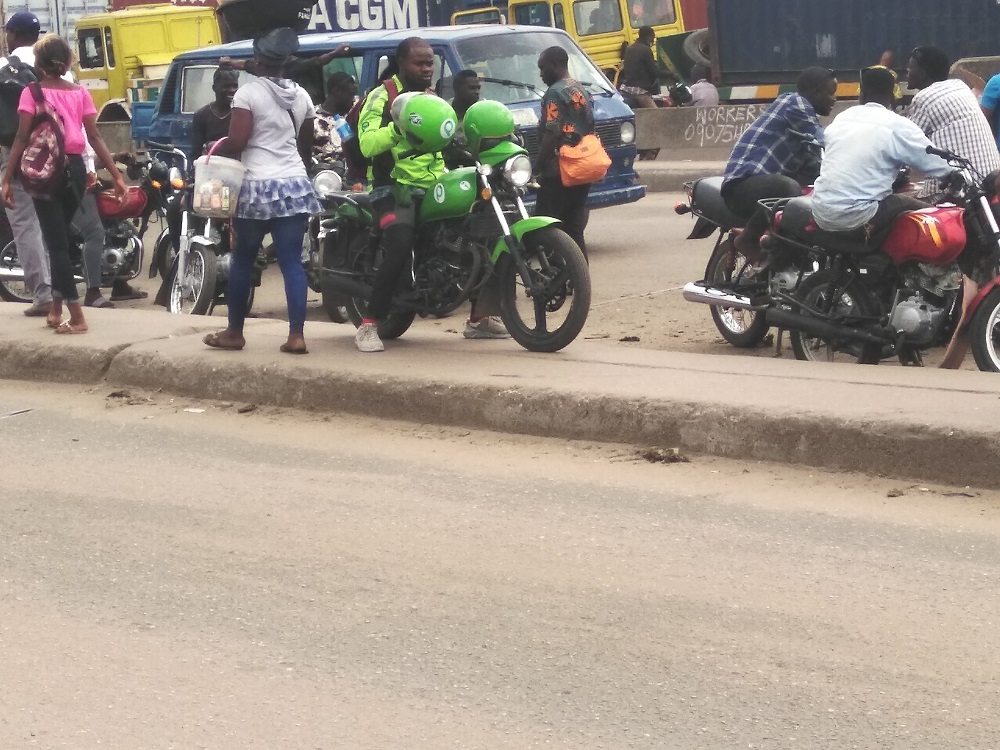

“I usually come to this express to park my bike with other okadas,” says an ORide biker who refuses to be named. “It is a kind of advertisement. I look very different so people will always notice me. And the ones who want to take regular okada will see me and have it in mind that there is ORide, just in case of next time,” he says.
Okada vs Bike Hailing
So how do the afore-mentioned regular okada riders perceive these new guys on the block? Are bike hailing companies here to take their business? Are they registered with any of the motorcycle unions in the state or the country and paying dues? If they aren’t, should they? Are they friends or are they foes?
Emmanuel an okada rider at Cele says, “Some Go bikes like to run express and some like to run inside street. It depends. But they are more on the express because they cannot use our park so they don’t affect us.”
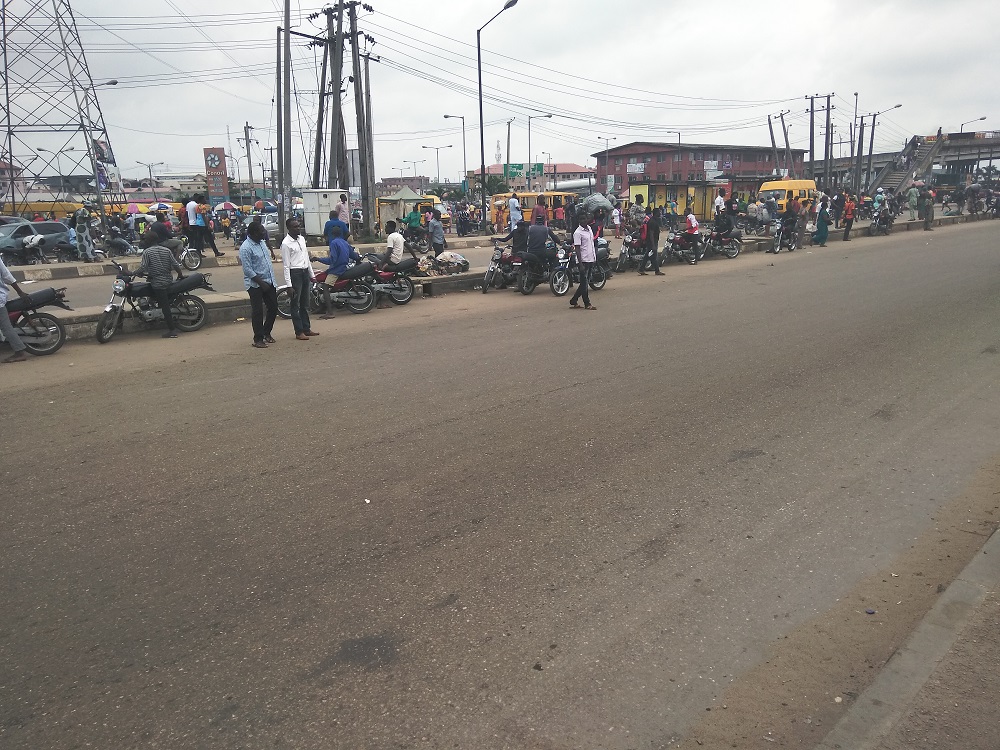

Paul, another okada rider plying the Gate/Ejigbo/Igando route explains the difference between the power bikes used by bike hailing companies and their own Bajaj and how government regulation only allows power bikes to ply certain routes.
“That one is power bike and that’s why government recognise them,” he says. “Police can’t hold them when they are working on some road but police can hold this my own called Bajaj. So those power bikes can go far and even to other states. In short, where this our own(sic) cannot go those ones can go there and no one will stop them.”
Charles an okada man at the Kilo/Lawanson/Ijesha axis calls bike hailing motorcycles ‘Uber’ and thinks there is a huge difference between them and regular okada.
“We, we have park and we are working under union most especially NAMORA and MOALS the national union,” he says. “Those people, ORide and others that use helmet they can’t stay in our park. Because if they stay in our park our national union will disturb them.”
Is this difference a good thing?
From the responses so far, it is obvious that regular okada riders see a big difference between themselves and bike hailing companies. They have unions, both national, state and local governments to which they pay some kind of dues and which more or less regulate their movements. Thus they have places, street junctions and even bus stops designated as parks which anyone that isn’t them can’t use. But do these differences translate to much?
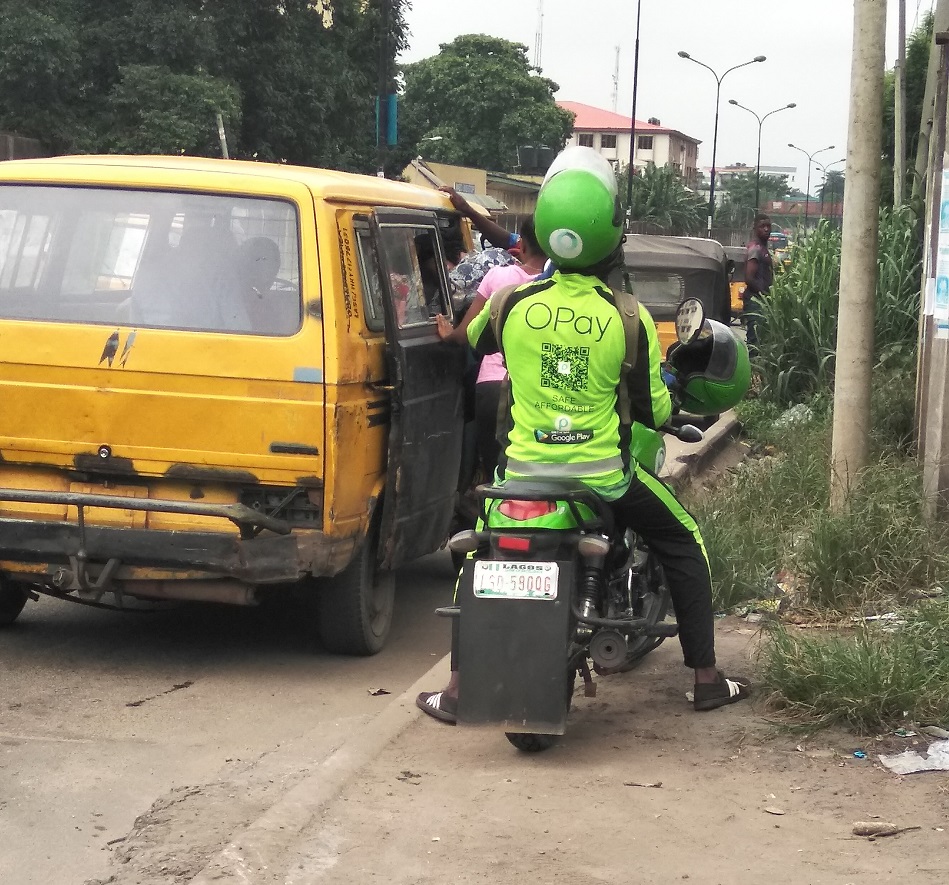

“Their business don’t really affect our own,” Emmanuel says. “It is actually a good business, at least they can go very far. Some people need to go somewhere very fast, they can easily take them there and we can’t. So it is very good to have them around.”
Charles agrees with Emmanuel insisting that because the power bikes are different from regular okada/Bajaj, they render a different kind of service and cater to a different market even though they are in the same field.
“No, no, no, there is no much competition and they don’t affect us at all,” he says. “Like me that I’m talking to you now, the area I ply is not the same area they ply. Me I do go in local area. Like all these highway and federal roads, I don’t ply that area. Unless the other big bikes that ply that area, but me, I think they have their own and we have our own.”
The Recent Agbero vs ORide/Gokada Clash in Ojuelegba
With the meteoric rise to emphatic prominence of bike hailing start-ups, it was only a matter of time before the Nigerian factor caught up with them. When it did, it came in form of transport union workers popularly called agberos. Recent reports, videos and pictures show them harassing ORide, Gokada and MaxNG bikers at Ojuelegba, forcing them to pay exorbitant dues very much like regular okada.
While this has generated a lot of reaction, most of them in favour of bike hailing companies, I decided to find out what the regular okada guys plying that route think of this development.
First, I discovered that the harassment has spread to other areas, notably Boundary in Ajegunle where Olasukanmi, a bike guy who plies the Boundary to Ijora/Ojuelegba/CMS route, asserts that an ORide driver was accosted at Boundary on Thursday morning.
“They stopped one here this morning,” he tells me in pidgin. “They said he must pay for ticket. That when he pays his office would reimburse him. But truth is that even BRT pays for ticket. So the ORide bosses should just sort it out. Maybe they can pay in bulk once and for all like the BRT instead of tearing ticket every day.”
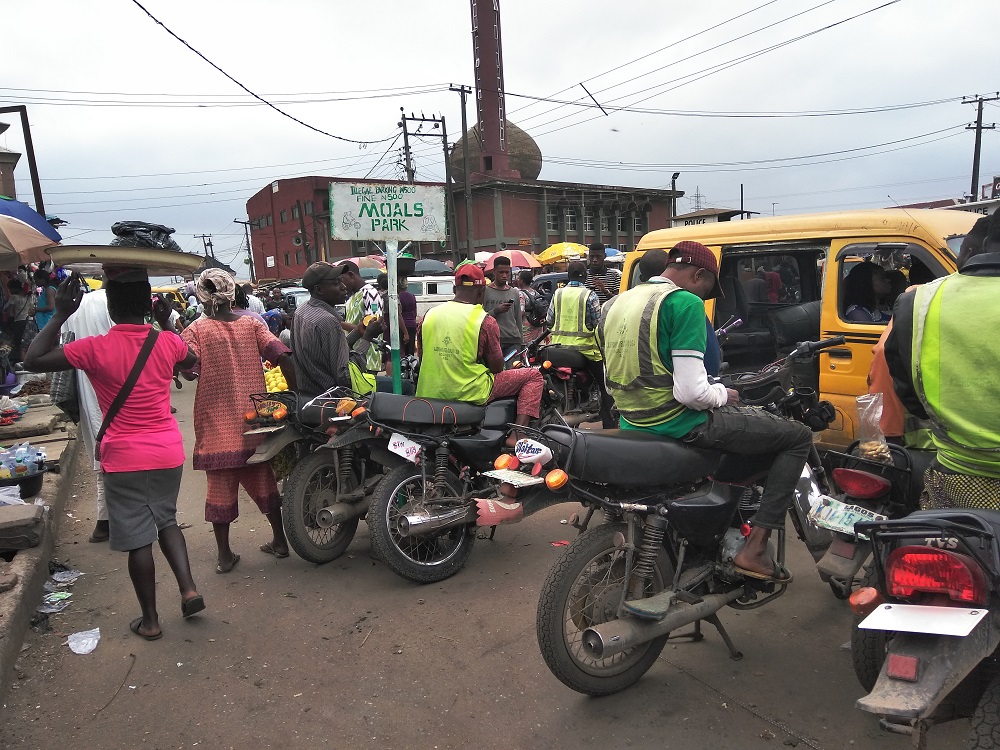

Samson, a bike rider at Ojuelegba says the reason why bike hailing companies are harassed is because they have refused to pay the daily dues to the unions.
“They said they should collect ticket N500 everyday,” he tells me. “If they collect that ticket they won’t disturb them again here.”
He nonetheless explains that even after paying for the tickets the bike hailing startups won’t be allowed to park in the union park right there around the Ojuelegba Bridge. Instead they would be allowed to pick passengers and drop off without harassment.
“Even if they are just passing they would hold them,” Festus a fellow okada man interjects. “They can follow on top of the bridge and not be harassed. But if they pass down here, if they have not bought ticket for that day, they will be harassed.”
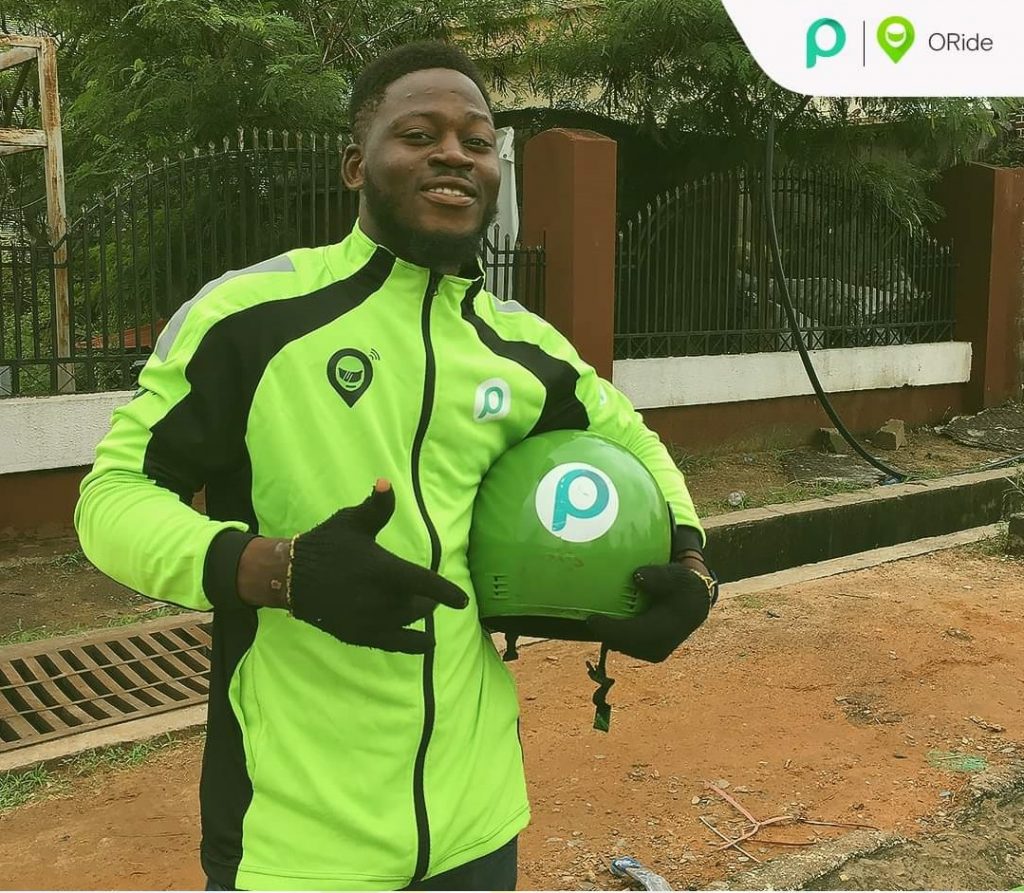

As for compliance, bike hailing companies appear to have resigned to their fate and started paying for the tickets. According to Samson, compliance by the drivers is pretty high.
“A lot of them have bought the ticket,” he says. “Some still didn’t buy but those ones can’t pass through and they usually pass on top of the bridge.”
The regular okada guys think it’s only fair that the bike hailing companies pay for tickets too.
“Every okada here pays 500 Naira every day,” Festus says. “If they want to operate here they must buy that ticket.”
Samson agrees with his colleague insisting that nobody is asking the bike hailing companies not to operate anywhere but if they must do like the Romans when in Rome, they should extend the same courtesy everywhere.
“They are always claiming that the bikes belong to government but that isn’t true. But even if it is true, did the government ask them not to buy ticket? Even BRT pays to the government so what are we talking?”
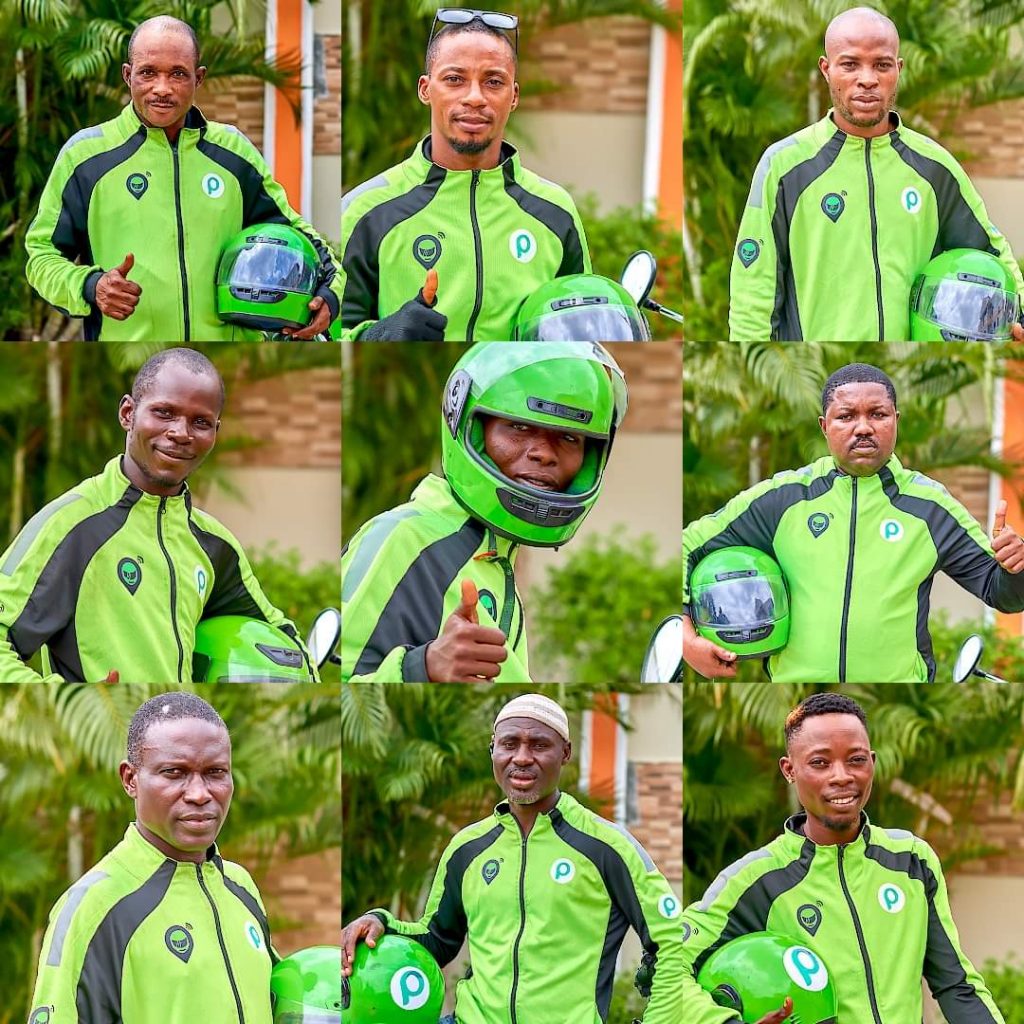

This development doesn’t augur well for Gokada, ORide and other bike-hailing startups who likely didn’t factor in this agbero ticket money as part of their running cost. Now imagine having 500 bikes and having to pay 500 Naira everyday for each of them. That’s about 250,000 Naira per day. Then if the trend of harassment were to spread to other places, then we could be looking at 250,000 x how many places. This simply would be a disaster.
Would regular okada guys rather work with ORide, Gokada and co?
It’s no longer news that bike hailing companies are the newest and probably hottest guys on the block. ORide, probably the most-funded and arguably the most popular, operates with a war chest of up to $40million. Going through their Facebook page, it is obvious that ORide bikers are well-celebrated and as reports suggest, well-remunerated as well.
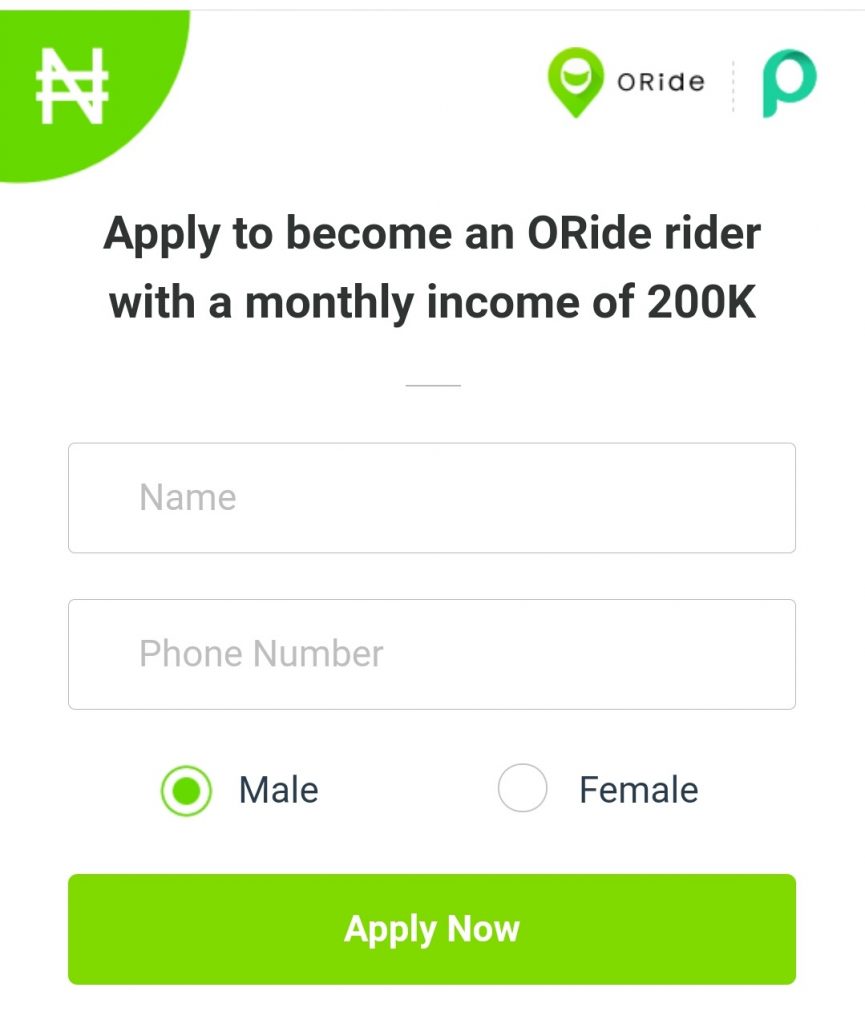

So I asked the regular okada guys if they would rather work with any of the bike hailing companies.
“For me to be an okada rider, not that I truly like it,” Charles says. “If I even see a way to drop my own, I can even drop it and return to business. But because those power bike people are earning much because there is money there, if I find out that it is true, I can still find myself in that business because I work hard.”
Emmanuel was more direct with his response. “If I see the opportunity I would like to join because it’s a good business.”
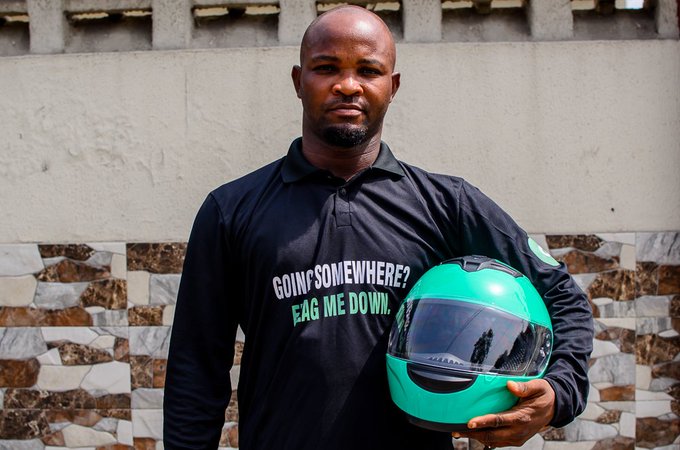

Paul on the other hand thinks it would be difficult for him to switch to the power bikes of bike hailing platforms because he is already used to his Bajaj.
“The only thing is that those bikes no master me. I still base on this particular one that was banned. I won’t be able to join them because this one has already mastered me.”
What have they learned from the bike hailing model?
Bike hailing startups are certainly changing people’s views about okadas with their unique business models, most common of which is the use of apps. And then of course there are the obviously bigger and sturdier power bikes which aren’t banned from major roads and highways and the accompanying helmet.
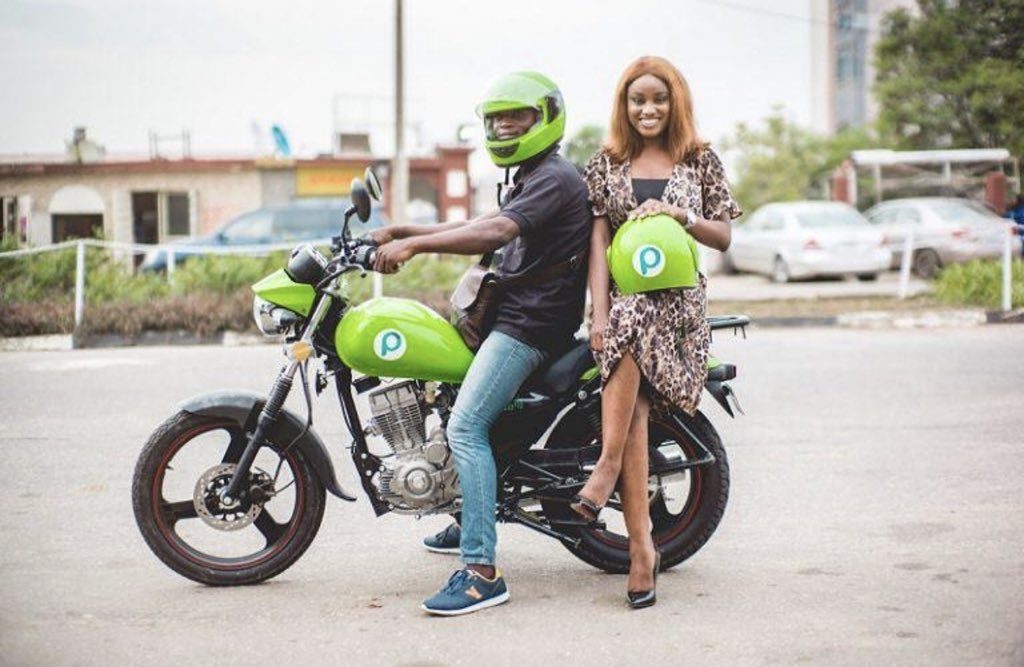

Some distribute hair nets beneath the helmets while most furnish passengers with raincoats on rainy days. ORide in particular adopts the strategy of slashing prices, going as low as 50 Naira for any journey with their newly launched services in Ibadan.
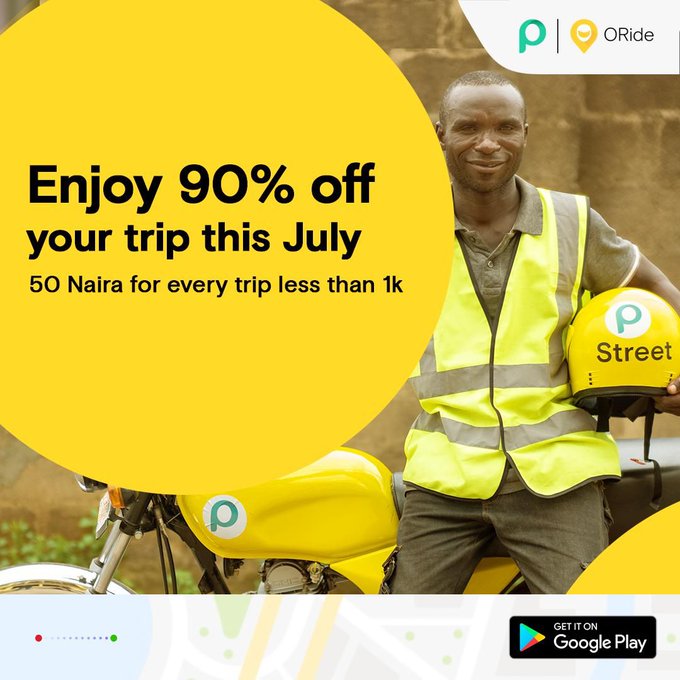

While some regular okada riders are impressed with some of these models, others are simply indifferent.
“The app business (model) is very good,” Emmanuel insists. “Through that app you can contact more customers. And as I don’t have app, I am now giving my phone number so when they need me they call me,” he says.
Paul likes the fact that they use power bikes and as such can go practically anywhere. But since he has no desire to switch to power bikes, he feels the helmet is an aspect he would like to include in his own operations.
Charles simply doesn’t see a need to change with the times.
“I don’t see anything,” he says. “Nothing at all”.
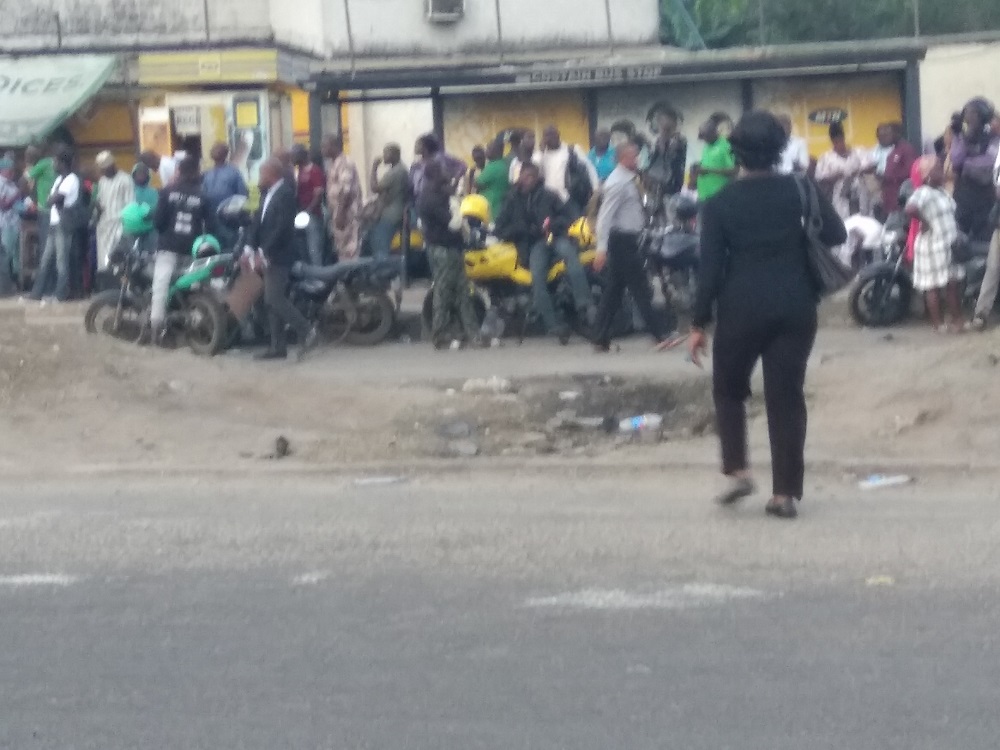

In Okota/Ejigbo they simply call them power bikes. In Surulere they are ‘Uber okada’. In Ojuelegba they are ‘Go Bikes’. But one thing regular okadas all agree on is that the ride sharing business is somewhat an extension of their own services. A much needed improvement of sorts which caters to the kinds of journeys they aren’t exactly suited for and which, in many ways compliments rather than discredits them.






